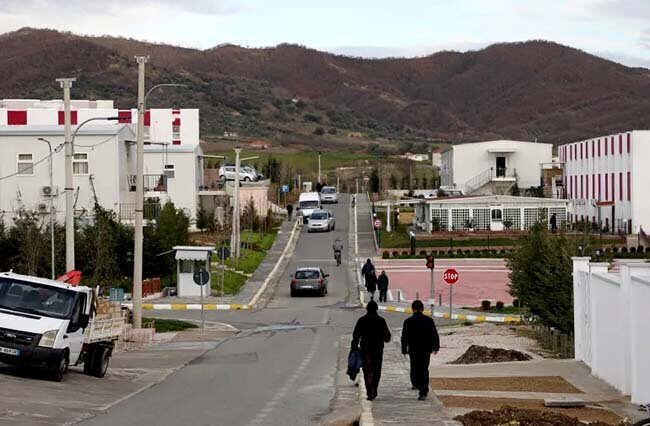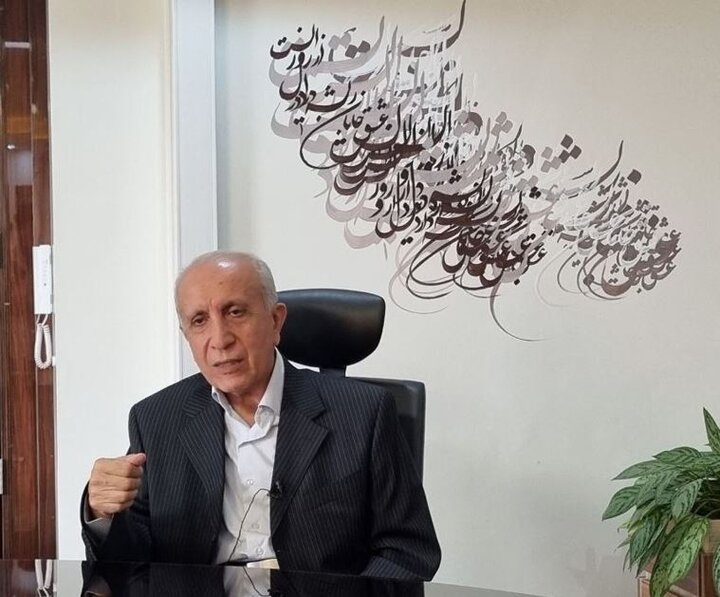Europe’s hidden human rights crisis: The MEK’s forbidden family bonds
Iranian families beg Red Cross for answers on missing relatives recruited by terror organization

TEHRAN – The human heart craves family. It's crucial for our well-being, providing warmth, security, and a sense of belonging. But for a terrorist group that has isolated over 2000 people in a cloistered community at the heart of Europe, familial bonds are not a source of strength, but a threat to obedience.
Within the Ashraf camp in Albania, all that matters is how members serve the Mujahideen-e-Khalq (MEK) leadership. Family is considered a distraction from the directives of the leaders. The group ensured this belief was engraved in the hearts and minds of its members during the 1990s and 2000s by forcing all couples in the original Ashraf camp in Iraq to divorce and then sending their children away. At least 800 children were separated from their parents and relocated to Europe, without any subsequent reunification.
The MEK has also actively worked to prevent its members' remaining family members in Iran from contacting those inside the camp. In there, MEK individuals do not have access to phones, internet, or anything else that could help them connect to their loved ones back in Iran. When they do use phones or any other device that could act as a means of communication, they are never unfettered; their every move is monitored by a higher-ranking member of the organization, according to Ebrahim Khodabandeh, a former MEK member and current CEO of the Nejat Association, a Tehran-based entity with offices across Iran and Europe that assists families seeking contact with loved ones in the MEK.
"As a former member of the terror group, I know it's impossible for those in the Ashraf camp to contact their loved ones," he explained. "That's assuming they've even overcome the organization's brainwashing, which tells them their families despise them and would readily hand them over to Iranian forces." He added, "But that couldn't be further from the truth. Families across Iran desperately seek to connect with their loved ones in the Ashraf camp. For the past two decades, I've received calls every day from people crying and begging me to help them find a sister, brother, father, mother, son, or daughter they haven't heard from in years."
Khodabandeh explained that the hopes of these families were often simple; most wanted nothing more than to know if the person who left them years ago was still alive. "The International Committee of the Red Cross (ICRC) should be the organization making this possible," he declared. "It is with great regret that I must say they have failed to provide adequate assistance in this regard."

Ebrahim Khodabandeh, the CEO of Nejat Association
The Red Cross has a mandate and a long history of helping family members find their loved ones, especially in situations of armed conflict, other situations of violence, natural disasters, and migration. This work is a core part of their humanitarian mission and is known as Restoring Family Links (RFL).
In his remarks to the Tehran Times, Khodabandeh noted that he was aware of cases where the Red Cross delivered letters from Al-Qaeda members to their families in Saudi Arabia, which made their failure in assisting the families of MEK members all the more shocking.
"I've lost count of the times I've spoken to ICRC officials in Iran, Albania, and Geneva, where their headquarters are," he stated. "I also write to them every year on World Red Cross and Red Crescent Day, May 8. Yet, I've never received a satisfactory explanation as to why we haven't been able to connect these people with their family members in the Ashraf camp. They have stopped responding to me altogether in recent years."
The Ashraf camp in Albania functions as a state within a state. Previously, aid workers attempting to deliver letters from family members in Iran or other countries were turned away at the gate and denied any contact with MEK members. "The ICRC said the organization told them the people we were trying to reach didn't want the letters," Khodabandeh recounted. "When I pressed them, asking how they could possibly justify that flimsy excuse, they had nothing to tell me."
The MEK's treatment of its members not only violates international legal standards, including UN and humanitarian laws, but also runs afoul of the Constitution of Albania. Specifically, the group's practices within Camp Ashraf violate Articles 16, 17, 18, 19, and 21, which guarantee rights such as personal freedom and security, inviolability of domicile, freedom of expression, freedom of association, and access to information.
“The ICRC must contact the Albanian government and facilitate contact through the authorities there. I don't understand why they aren't assisting us with this. All I know is that based on their own mandates, it is their responsibility,” The CEO of the Nejat Association stated. "I am writing to the ICRC again this year on May 8th. I hope that they write back to me, and at least offer explanations as to why they are unable to fulfill their mandate."
Another body that appears to be falling short on its responsibilities when it comes to the dire situation in the Ashraf Camp is the United Nations High Commissioner for Refugees (UNHCR). The entity recognized MEK members as refugees when they were stationed in Iraq, which obliges UNHCR workers to now personally meet with them in Albania, and ensure that these members enjoy basic human rights, including the right to life, liberty, and security of person; freedom of movement; freedom of religion; freedom of expression; and the right to education.
The Tehran Times understands that the actions of European states regarding terrorism have influenced organizations like the ICRC and the UNHCR. The West tends to categorize terrorists into ‘bad’ and ‘good’ groups. Due to its anti-Iran activities, the MEK is considered a ‘good’ terrorist organization by the West, according to information obtained by the Tehran Times. Consequently, aid organizations are often less likely to advocate for the rights of individuals linked to the MEK or investigate the group’s human rights violations.
